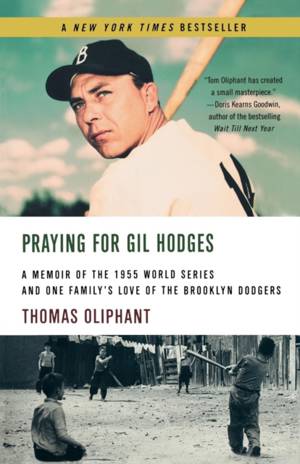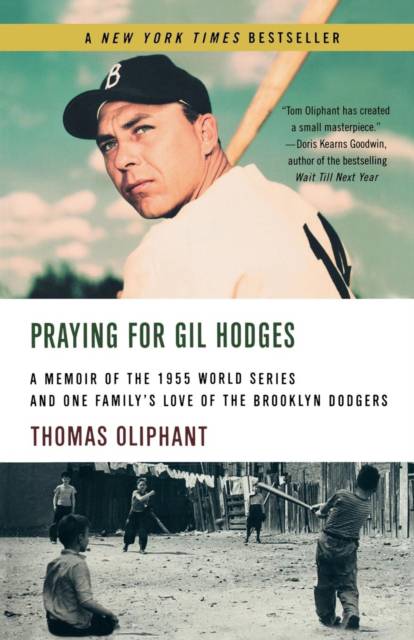
- Retrait gratuit dans votre magasin Club
- 7.000.000 titres dans notre catalogue
- Payer en toute sécurité
- Toujours un magasin près de chez vous
- Retrait gratuit dans votre magasin Club
- 7.000.0000 titres dans notre catalogue
- Payer en toute sécurité
- Toujours un magasin près de chez vous
Praying for Gil Hodges
A Memoir of the 1955 World Series and One Family's Love of the Brooklyn Dodgersc
Thomas Oliphant
Livre broché | Anglais
31,95 €
+ 63 points
Description
Thomas Oliphant's Praying for Gil Hodges is a brilliant work capturing the majesty of baseball, the issue of race in America, and the love that one young boy, his parents, and the borough of Brooklyn had for their team.
On a steamy hot Sunday, the Reverend Herbert Redmond was celebrating Mass at a church in Brooklyn, when he startled his congregation thus: "It's far too hot for a sermon. Keep the Commandments and say a prayer for Gil Hodges." Praying for Gil Hodges is built around a detailed reconstruction of the seventh game of the 1955 World Series, which has always been on the short list of great moments in baseball history. On a sunny, breezy October afternoon, something happened in New York City that had never happened before and never would again: the Brooklyn Dodgers won the world championship of baseball. For one hour and forty-four minutes, behind a gutsy, twenty-three-year-old kid left-hander from the iron-mining region of upstate New York named Johnny Podres, everything that had gone wrong before went gloriously right for a change. Until that afternoon, leaving out the war years, the Dodgers and their legions of fans had endured ten seasons during which they lost the World Series to the New York Yankees five times and lost the National League pennant on the final day of the season three times--facts of history that give the famous cry of "Wait Till Next Year!" its defiant meaning. Pitch by pitch and inning by inning, Thomas Oliphant re-creates a relentless melodrama that shows this final game in its true glory. As we move through the game, he builds a remarkable history of the hapless "Bums," exploring the Dodgers' status as a national team, based on their fabled history of near-triumphs and disasters that made them classic underdogs. He weaves into this brilliant recounting a winning memoir of his own family's story and their time together on that fateful day that the final game was played. This victory thrilled the national African-American community, still mired in the evils of segregation, who had erupted in joy at the arrival of Jackie Robinson eight years earlier and rooted unabashedly for this integrated team at a time when the country was thoroughly segregated. And it also thrilled a nine-year-old boy on the East Side of Manhattan in a loving, struggling family for whom the Dodgers were a rare source of the joys and symbols that bring families together through tough times.Spécifications
Parties prenantes
- Auteur(s) :
- Editeur:
Contenu
- Nombre de pages :
- 304
- Langue:
- Anglais
Caractéristiques
- EAN:
- 9780312317621
- Date de parution :
- 30-05-06
- Format:
- Livre broché
- Format numérique:
- Trade paperback (VS)
- Dimensions :
- 137 mm x 213 mm
- Poids :
- 408 g

Les avis
Nous publions uniquement les avis qui respectent les conditions requises. Consultez nos conditions pour les avis.






